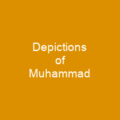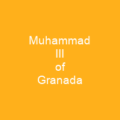The Holy Quran: A Divine Revelation
Discover the profound and timeless words of God as revealed through the angel Gabriel to Prophet Muhammad over 23 years. The Quran, Islam’s central religious text, is believed by Muslims to be a complete code of life, guiding them in every aspect of their existence.
The Word ‘Quran’: Meaning and Significance
Explore the rich meanings behind the word ‘qur’ān.’ It means ‘he read’ or ‘he recited,’ reflecting its nature as a divine speech. The Quran describes itself as ‘the discernment,’ ‘the mother book,’ ‘the guide,’ ‘the wisdom,’ and ‘the remembrance.’ These titles highlight its multifaceted role in guiding humanity.
Compilation and Preservation
The compilation of the Quran was completed after Prophet Muhammad’s death. Various versions and variant readings exist, but Muslims believe it is a preserved text protected from corruption. The present form accepted by scholars corresponds to that revealed to Muhammad. The process involved scribes under Abu Bakr and later Uthman, who standardized the text.
Qira’at: Recitation Variants
The development of qira’at (ways of reciting) followed after the Prophet’s death. Shias follow the qira’at of Hafs on authority of ‘Asim, while other personal copies might have existed but none survive today.
Academic Insights and Discoveries
Academic research has shed light on the Quran’s origins and evolution. Manuscripts discovered in Yemen, dating back to 12,000 pieces, provide some of the oldest known texts. The Birmingham Quranic manuscript, dated between 568 and 645 AD, offers insights into early Quranic writing.
Content and Themes
The Quran’s content is rich with stories, teachings, and guidance. It emphasizes humility, justice, and the importance of enjoining good and forbidding evil. The text also addresses governance, family life, and legal matters, though interpretations vary among different groups.
Scientific and Natural Phenomena
The Quran’s descriptions of natural phenomena have sparked debate about its scientific accuracy. Some scholars argue that the text contains scientific facts centuries ahead of their discovery, while others dispute this claim. The ijaz movement promotes these ideas but faces criticism for reconciling science with religious beliefs.
Literary and Aesthetic Value
The Quran’s literary style is described as ‘rhymed prose,’ combining poetic elements with practical guidance. Its structure employs phonetic and thematic devices, making it both profound and accessible. The doctrine of ‘i‘jāz (inimitability) holds that the Quran’s eloquence is unique and divine.
Respect and Reverence
Muslims treat the Quran with great respect, believing its text to be protected from corruption. Rituals such as wudu before recitation and proper handling of copies reflect this reverence. The Quran’s influence extends beyond religious practices into art, literature, and daily life.
Conclusion
The Quran remains a central pillar of Islamic faith, guiding millions with its divine revelations and teachings. Its preservation, interpretation, and impact continue to shape the lives of Muslims worldwide, making it an enduring source of wisdom and guidance in our modern world.

You want to know more about Quran?
This page is based on the article Quran published in Wikipedia (retrieved on January 3, 2025) and was automatically summarized using artificial intelligence.







